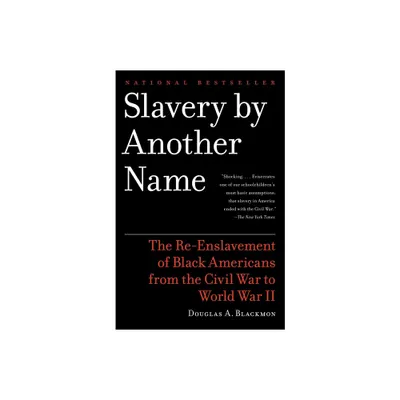Home
Slavery By Another Name: the Re-Enslavement of Black Americans from Civil War to World II
Loading Inventory...
Barnes and Noble
Slavery By Another Name: the Re-Enslavement of Black Americans from Civil War to World II
Current price: $20.00


Barnes and Noble
Slavery By Another Name: the Re-Enslavement of Black Americans from Civil War to World II
Current price: $20.00
Loading Inventory...
Size: Paperback
*Product Information may vary - to confirm product availability, pricing, and additional information please contact Barnes and Noble
This groundbreaking historical expose unearths the lost stories of enslaved persons and their descendants who journeyed into freedom after the Emancipation Proclamation and then back into the shadow of involuntary servitude shortly thereafter in “The Age of Neoslavery.”
By turns moving, sobering, and shocking, this unprecedented Pulitzer Prize-winning account reveals the stories of those who fought unsuccessfully against the re-emergence of human labor trafficking, the companies that profited most from neoslavery, and the insidious legacy of racism that reverberates today.
Following the Emancipation Proclamation, convicts—mostly black men—were “leased” through forced labor camps operated by state and federal governments. Using a vast record of original documents and personal narratives, Douglas A. Blackmon brings to light one of the most shameful chapters in American history.
“An astonishing book. . . . It will challenge and change your understanding of what we were as Americans—and of what we are.” —
Chicago Tribune
By turns moving, sobering, and shocking, this unprecedented Pulitzer Prize-winning account reveals the stories of those who fought unsuccessfully against the re-emergence of human labor trafficking, the companies that profited most from neoslavery, and the insidious legacy of racism that reverberates today.
Following the Emancipation Proclamation, convicts—mostly black men—were “leased” through forced labor camps operated by state and federal governments. Using a vast record of original documents and personal narratives, Douglas A. Blackmon brings to light one of the most shameful chapters in American history.
“An astonishing book. . . . It will challenge and change your understanding of what we were as Americans—and of what we are.” —
Chicago Tribune


















